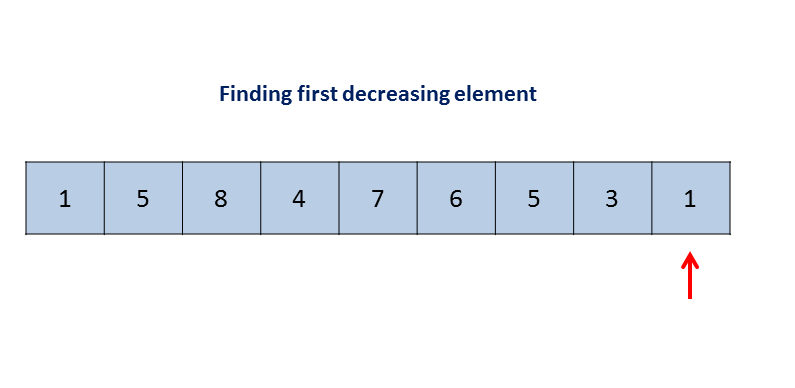题目:
实现获取下一个排列的函数,算法需要将给定数字序列重新排列成字典序中下一个更大的排列。
如果不存在下一个更大的排列,则将数字重新排列成最小的排列(即升序排列)。
必须原地修改,只允许使用额外常数空间。
以下是一些例子,输入位于左侧列,其相应输出位于右侧列。
1,2,3 → 1,3,2
3,2,1 → 1,2,3
1,1,5 → 1,5,1
思路:<时间复杂度:O(n)>&<空间复杂度:O(1)>
从右往左遍历数组,找到第一个递减的数值 tmp 和索引 i
1 # [5,1,4,3,2,1,0]
1.此前,tmp 右边已按降序排列 (即为最大值序列),下一步只需要在右边找到比 tmp 大的数值里且是最小的 索引值 j ( 等于也不行,上例中应找到数值2)
2.元素交换,再把nums[ i+1: ]排序。

class Solution: def nextPermutation(self, nums: List[int]) -> None: """ Do not return anything, modify nums in-place instead. """ if not nums or len(nums) == 1: pass else: index = 0 for i in range(len(nums)-1,0,-1): if nums[i] > nums[i-1]: #先找到第一个递减的数 index = i tmp = nums[i-1] #去找一个比tmp较大的数 break if not index: nums.reverse() else: print(index) index_ano = 0 for j in range(index-1,len(nums)-1): if nums[j+1] <= tmp: index_ano = j break if index_ano: nums[index-1],nums[index_ano] = nums[index_ano],nums[index-1] nums[index:] = sorted(nums[index:]) else: #递减且比tmp大 nums[index-1],nums[-1] = nums[-1],nums[index-1] nums[index:] = sorted(nums[index:])